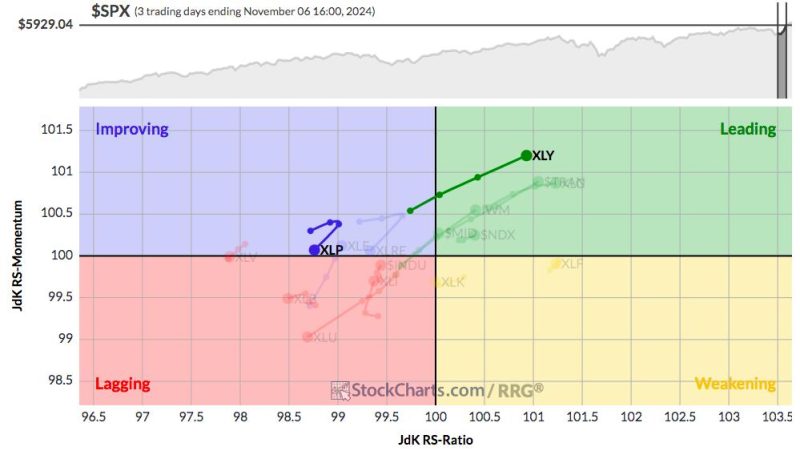In a world that is constantly evolving, the financial markets are no exception. As investors navigate the ups and downs of the economy, the concept of a secular bull market has continued to garner attention. This long-term phase of rising asset prices coincides with shifting investment trends and market rotations that impact portfolios and strategies.
One distinguishing feature of the current secular bull market is the major rotation that has taken place. This rotation refers to the movement of investors’ capital from one asset class to another, driven by changes in economic conditions, market dynamics, and investor sentiment. In recent times, the rotation has been particularly pronounced, affecting various sectors and industries in different ways.
One sector that has witnessed a significant shift in investor interest is technology. Historically viewed as a growth engine for the market, technology stocks have experienced a reevaluation as investors seek to diversify their portfolios and manage risk. This reevaluation has led to a rotation away from high-growth tech names and towards more value-oriented sectors such as industrials, energy, and financials.
The rotation has also been influenced by global trends and geopolitical developments. As concerns over inflation, interest rates, and trade tensions persist, investors are adjusting their holdings to account for these risk factors. This has resulted in a repositioning of portfolios towards assets that are seen as more resilient in the face of uncertainty, such as gold, real estate, and defensive stocks.
Furthermore, the rotation in the secular bull market has implications for investment strategies and asset allocation. Investors are increasingly looking for opportunities to capture returns in sectors that are poised for growth while also protecting their portfolios from potential downtrends. This balancing act requires a careful assessment of market conditions, industry trends, and individual stock performance.
Navigating the complexities of a major rotation in a secular bull market requires a disciplined approach and a diversified portfolio. By staying informed about market dynamics, conducting thorough research, and remaining adaptable to changing circumstances, investors can position themselves to capitalize on opportunities and mitigate risks. Ultimately, the ability to navigate market rotations successfully is a key factor in achieving long-term investment success in a secular bull market.
